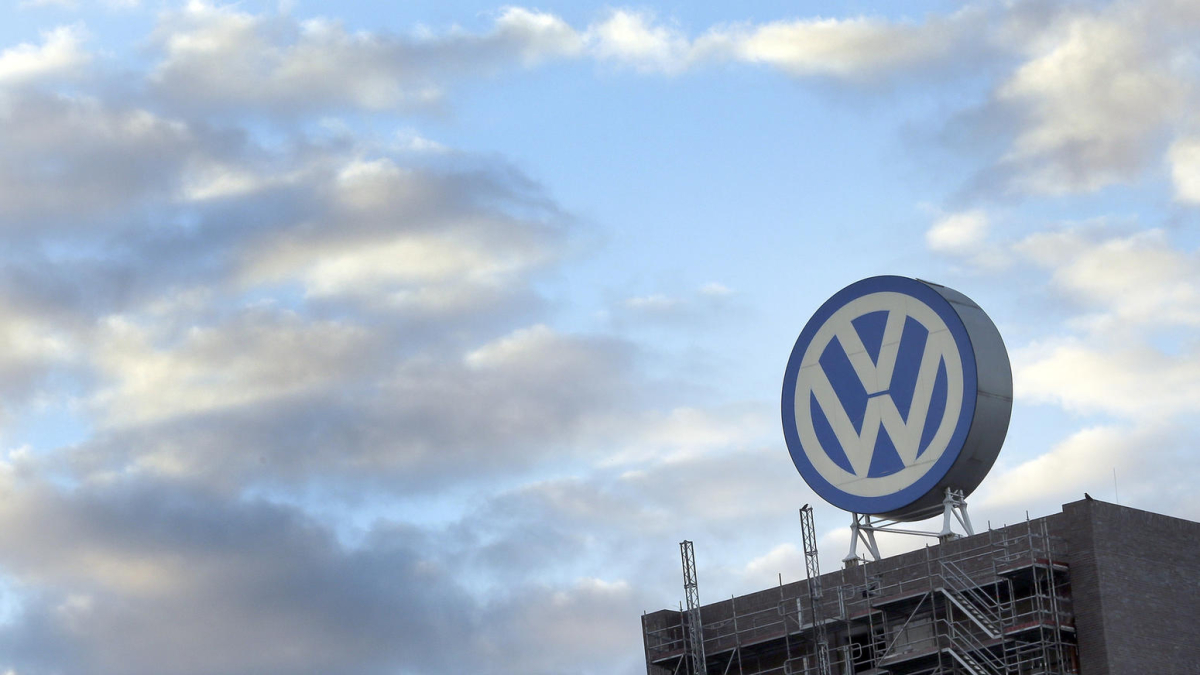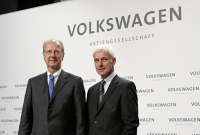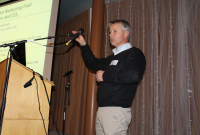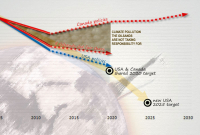Support strong Canadian climate journalism for 2025
Waqas Mubarik found out he was one of the unlucky ones in 2015 when the Volkswagen scandal broke out. His 2015 Passat diesel was equipped with one of the so-called defeat devices designed to cheat on emissions tests.
“I’ve been a loyal customer to Volkswagen for years,” the physician’s assistant said on the phone from Barrie, Ontario. “This is my fourth Volkswagen and, honestly, I felt betrayed.”
Volkswagen admitted last fall that it used defeat devices on nearly 500,000 diesel cars sold in the U.S. and about 100,000 vehicles sold in Canada between 2009 and 2015.
The devices were designed to fool government labs during indoor testing, hiding the fact that Volkswagen vehicles were spewing up to 40 times more toxic pollution than advertised.
While the German auto manufacturer announced a massive settlement worth more than $15-billion in the United States on Tuesday, Canadians like Murbarik are still waiting to hear of any news at all from Volkswagen in Canada.
Mubarik is just one of the some 100,000 Canadians who are in the dark about the value of their vehicles and what kind of compensation they might expect from a company that’s deeply disappointed them.
At the same time, Canadian courts are beginning to sort out a tangle of class actions over the car company. Some 39 class action suits have been filed across Canada, with more than several to a province.
Not surprisingly, Mubarik has signed on to one of them while he awaits word from Volkswagen and wonders what will become of his car.
Stuck with a lemon
The news has been scant. Volkswagen sent Mubarik a $1,000 Mastercard gift card. Of that $500 must be spent at a Volkswagen dealership. And he received an email months ago saying they’re working on the issue and apologizing. But since then - nothing.
The gift card offered little solace to Mubarik, who says his car’s market value has dropped by more than 20 per cent since he bought it. The $28,000 vehicle isn’t even a year old. Mubarik says it’s currently valued at $12,000. Not only that, but he’s still making payments on it.
And he has other concerns. Soon he’ll need to renew his licence and while the Ontario government has reassured consumers that vehicles will not fail their emissions tests because of Volkswagen’s defeat device, he wonders if that might not change later on.
As well, he notes the U.S. settlement includes an offer for the car company to buy back the vehicles at their market value before the Dieselgate scandal while considering the mileage on the car.
“So the longer they drag the settlement, the more mileage we’re going to put on the car and the less value we’ll get for it,” Mubarik said.
Like Mubarik, Ken Wilson believes he’s stuck with a lemon. The Regina university associate professor owns a Golf diesel he bought in 2010, paying $30,000 for the vehicle, which he noted cost far more than a Golf with a gas engine.
“The reason we bought it was we were told it would help us cut emissions,” Wilson said. “We didn’t realize we were belching out nitrogen oxide out of the tail pipe instead.”
Wilson hasn’t head from Volkswagen since January when the company sent a letter saying they were working on the problem. That’s the last he heard beyond an emailed coupon for an oil change and an offer from the dealer for $3,000 toward a trade-in.
“It didn’t feel like very much to get an extra $3,000 on a car that’s been devalued by more than that,” Wilson said.
Wilson has also signed on to a class action suit.
One law firm alone has filed nine class action suits
In an email, Thomas Tetzlaff, media relations manager for Volkswagen Group of Canada, said that while settlement terms in the U.S. may be a consideration for discussions in Canada, the details from the American court proceedings may not apply.
The company hopes to provide remedies to Canadians on pace with U.S. customers, Tetzlaff wrote, and reiterated Volkswagen’s message to consumers that parties involved in class actions hope to provide a settlement update to Canadian courts on or before July 29, 016.
Tetzlaff wrote that once the parties to a class action proceeding reach a settlement, the affected customers will be informed and the court will then schedule a hearing to approve the settlement.
How and when that happens could be some time coming.
Tony Merchant, principal in the Merchant Law Group LLP headquartered in Regina, said currently judges across Canada are trying to determine which law suits will be allowed to proceed.
Merchant’s office alone has filed nine class actions against Volkswagen across Canada. Those suits represent close to 11,000 people. “It’s a huge number of people to have contacted us in advance of public advertising,” the lawyer noted.
As well, Merchant’s office has launched actions for another 600 individuals and potentially has actions pending for 500 more.
The class action seeks what the individual actions seek: damages for wrong-doing, Merchant said. But what form those might take could be complex.
“We think that the amount of money that each individual should receive is different, depending on the year, the make and use of their vehicle, and that’s why the individual actions,” Merchant said.
"Driving the dirtiest pig on the road"
As well the lawyer is advocating for an as-of-yet-to-be-determined punishment outside of any proposed settlement. He said Volkswagen should face “a societal slap of additional fines.”
Any punitive damages would be divided among the car owners.
“I can’t do justice to expressing how furious all sorts of people were. Many of them were buying these vehicles because they thought they had a more environmentally friendly vehicle.
“They thought they were doing something good for the world and they find out they’ve been driving the dirtiest pig on the road.”
Back in Barrie, Mubarik believes his decision to buy a Volkswagen was a poor one.
“I got stuck with a car and I’m still making payments on it and I don’t know if I will be able to sell it after or not because nobody will buy it.”
But in Regina, Wilson hasn’t ruled out buying another car from the German manufacturer again; his wife wouldn’t mind owning a Beetle.
“But they’re going to have to convince us that that’s the company we want to buy from again.”
Editor's Note: This story was updated on August 11, 2016 to correct the spelling of Waqas Mubarik's name.








Comments
How do I get on this Class Action Lawsuit. I have 2012 Golf Sports wagon Highland TDI, which is
part of scandal. I received the $1,000. which needs to be used by 01/17.
As mentioned above, the more we drive it, the less it will be worth. Some decision is coming up tomorrow, but that will not be end of it, am sure. I have been to two VW Dealers, and they will not give a value on my car.
I was told in Toronto, that VW does not want them to give me the Black Book value. What BS
VW is despicable in their handling of this issue, but let's not let the Canadian government off the hook either - they can force a more appropriate response. At the very least, give people an option of returning the cars, pending the outcome of this complex litigation. But no, if you return the car, VW will note you in default and your credit suffers. All this environmental care is nothing more than lip service.